The Cavadoodle, a delightful blend of the Cavalier King Charles Spaniel and the Poodle, has emerged as a popular choice among dog enthusiasts worldwide. Known for their charming appearance and affectionate nature, Cavadoodles embody the best traits of their parent breeds, making them an ideal pet for families, singles, and seniors alike. In this section, we delve into the origin, characteristics, and personality traits of this captivating breed.
Origin and History
The Cavadoodle, also known as the Cavapoo or Cavoodle, is a relatively new breed, having been developed over the last few decades. This hybrid was first bred in Australia in the late 1990s, with the goal of creating a dog that combined the gentle and loving nature of the Cavalier King Charles Spaniel with the intelligence and hypoallergenic coat of the Poodle.
The Cavalier King Charles Spaniel, one of the parent breeds, is a descendant of the toy spaniels seen in many 16th, 17th, and 18th-century European paintings. This breed was favored by royalty and nobility for its elegant appearance and amiable temperament. On the other hand, the Poodle, known for its intelligence and non-shedding coat, comes in three sizes (standard, miniature, and toy) and has its origins as a water retriever in Germany and France.
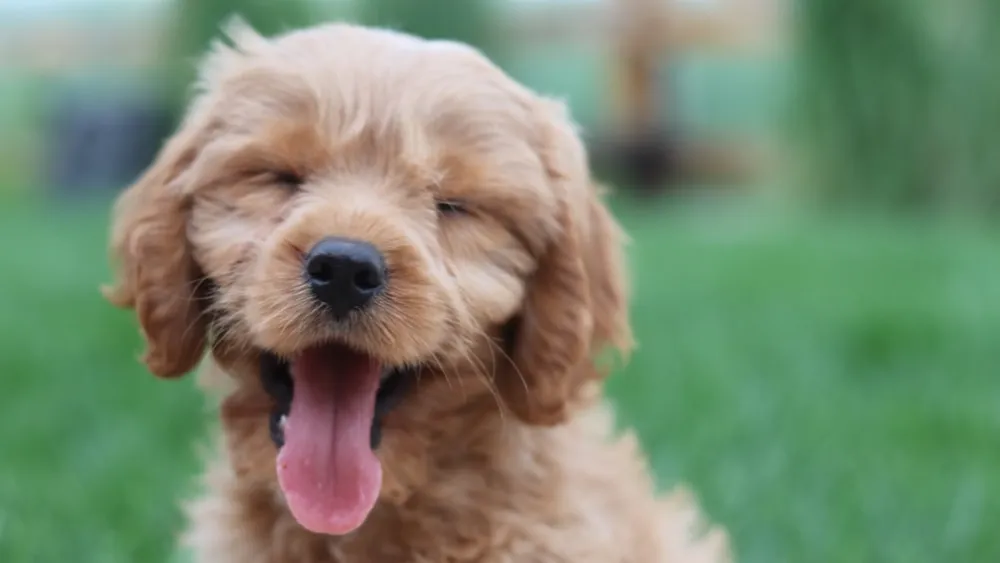
Breed Characteristics and Appearance
Cavadoodles typically inherit the soft, wavy to curly coat of the Poodle, which is often low-shedding and hypoallergenic, making them a suitable choice for allergy sufferers. They come in various colors, including cream, fawn, chocolate, gold, and black. The breed's size can vary, primarily depending on whether the Poodle parent was a toy or miniature variety, leading to Cavadoodles that range from small to medium size.
These dogs often have the sweet, expressive face of the Cavalier, with large, soulful eyes and a soft, endearing expression. Their ears are typically floppy, and their build is well-proportioned, with a sturdy yet elegant stature that reflects their Spaniel heritage.
Personality Traits
The Cavadoodle is known for its affectionate and friendly disposition. They are social dogs that thrive on interaction with humans and other pets. This breed is particularly known for its gentle nature, making them excellent companions for children. They are often eager to please, which coupled with their intelligence inherited from the Poodle side, makes them relatively easy to train.
These dogs are adaptable and can do well in various living environments, from apartments to larger homes with yards. However, they do require regular exercise and mental stimulation to keep them happy and healthy. Their sociable nature means they don't like being left alone for long periods, making them well-suited to households where they can enjoy plenty of company and interaction.
Understanding the Cavadoodle's Genetic Makeup
The allure of the Cavadoodle lies in its unique genetic makeup, a harmonious blend of two esteemed breeds: the Cavalier King Charles Spaniel and the Poodle. This combination brings together a rich tapestry of traits, offering a balance of both physical and temperamental characteristics that make the Cavadoodle a truly distinctive breed. Let's explore the individual contributions of each parent breed and how they contribute to the 'hybrid vigor' advantage seen in Cavadoodles.
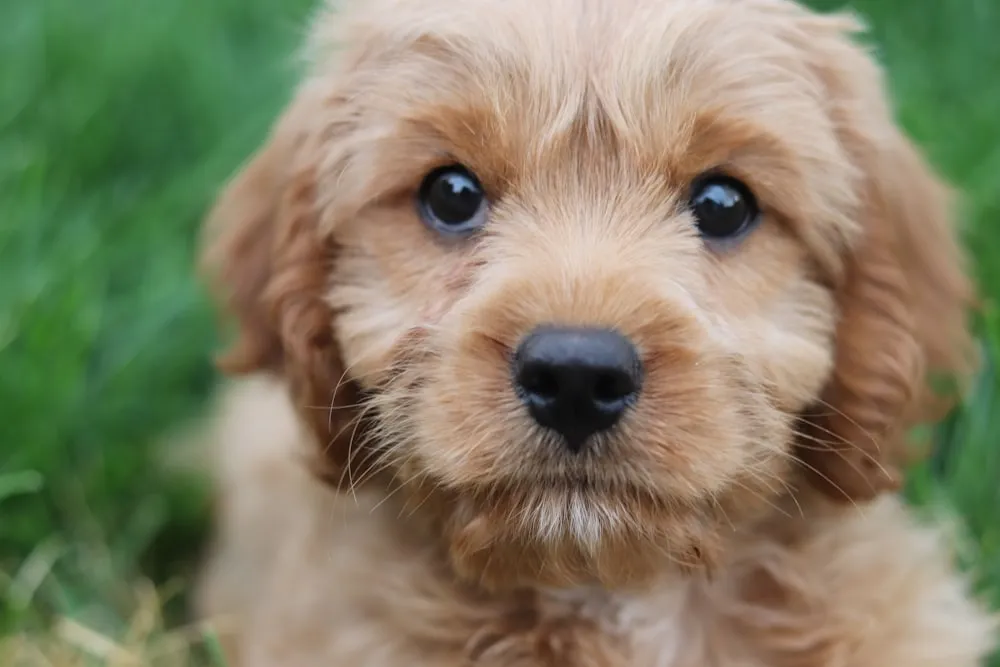
Cavalier King Charles Spaniel Traits
The Cavalier King Charles Spaniel, known for its regal yet approachable demeanor, contributes significantly to the Cavadoodle's genetic pool. Key traits include:
- Temperament: Cavaliers are renowned for their affectionate and friendly nature. They are incredibly sociable and form strong bonds with their families, making them excellent companions.
- Appearance: This breed's elegant, slightly wavy coat, and soulful, expressive eyes often manifest in their Cavadoodle offspring. They also bring the characteristic floppy ears and a gentle facial expression to the mix.
- Size and Build: Cavaliers are small to medium-sized dogs with a well-proportioned build, which influences the size and stature of the Cavadoodle.
- Health Considerations: While Cavaliers are generally healthy, they are predisposed to certain genetic conditions like heart problems and syringomyelia. These aspects are crucial to consider in Cavadoodle breeding.
Poodle Traits
The Poodle, admired for its intelligence and hypoallergenic coat, is another vital half of the Cavadoodle equation. Notable Poodle traits include:
- Intelligence and Trainability: Poodles are among the most intelligent dog breeds, known for their quick learning and problem-solving abilities. This intellect makes Cavadoodles highly trainable and responsive.
- Coat: The Poodle's hypoallergenic, curly coat is a significant trait for many Cavadoodle owners, especially those with allergies. This coat type often results in a low-shedding Cavadoodle.
- Size Variability: Poodles come in three sizes (standard, miniature, and toy), which can significantly influence the size of the Cavadoodle.
- Health Aspects: Poodles have their own set of genetic health considerations, such as hip dysplasia and eye disorders, that are important in responsible Cavadoodle breeding.
The Hybrid Vigor Advantage
'Hybrid vigor,' also known as heterosis, refers to the phenomenon where crossbred individuals exhibit improved or enhanced qualities compared to their purebred parents. In Cavadoodles, this can manifest in several ways:
- Health: Hybrid vigor can lead to improved overall health, with crossbreeds often being less prone to inherited diseases.
- Longevity: There is a potential for increased lifespan due to the diverse genetic pool.
- Temperament: The combination of the gentle nature of the Cavalier and the intelligence of the Poodle often results in a well-balanced, adaptable, and friendly dog.
- Physical Traits: The crossbreed may exhibit a mix of desirable physical features from both breeds, such as the Poodle's hypoallergenic coat and the Cavalier's expressive eyes.
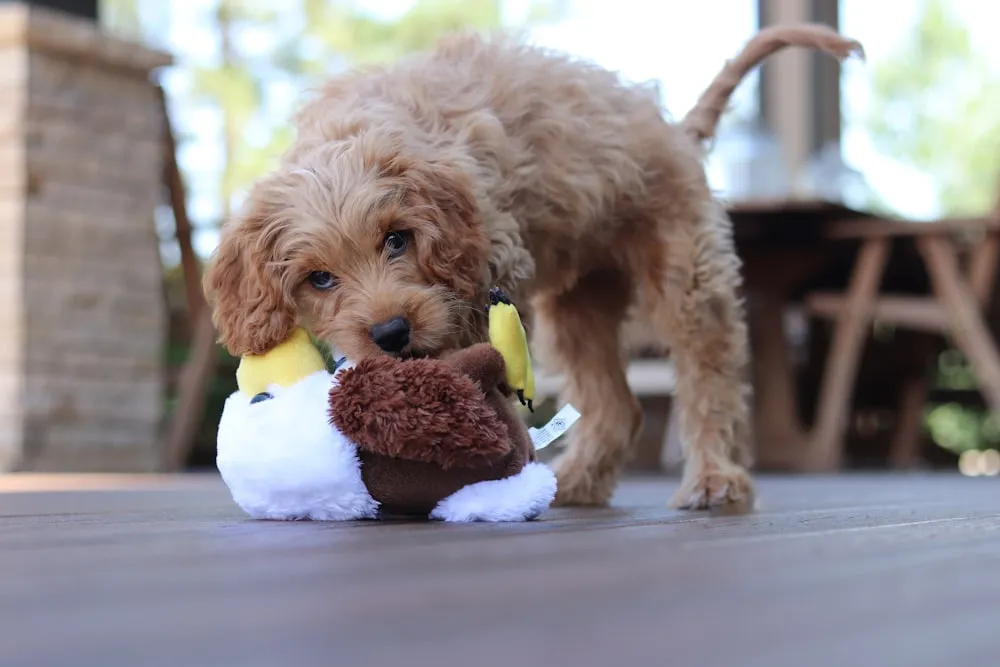
Understanding the genetic makeup of the Cavadoodle is essential for potential owners. It not only helps in appreciating the breed's unique characteristics but also guides in providing the appropriate care, training, and attention they require. This blend of traits from the Cavalier King Charles Spaniel and the Poodle, combined with the benefits of hybrid vigor, makes the Cavadoodle a beloved companion for many.
Cavadoodle Health and Wellness
Cavadoodles, like all breeds, have specific health and wellness needs. Understanding these needs is vital for any potential or current owner. This section covers the common health issues, lifespan and health maintenance strategies, and diet and nutrition essentials for Cavadoodles.
Common Health Issues
While the Cavadoodle benefits from hybrid vigor, they may still be prone to certain health issues, often inherited from their parent breeds. Common health concerns include:
- Ear Infections: Due to their floppy ears, Cavadoodles are susceptible to ear infections. Regular cleaning and monitoring are essential.
- Hip Dysplasia: This condition, more common in medium to large dogs, can occur in Cavadoodles, especially those with a larger Poodle parent.
- Eye Problems: Both parent breeds are prone to various eye conditions, such as progressive retinal atrophy, which can be inherited by Cavadoodles.
- Heart Conditions: The Cavalier King Charles Spaniel's predisposition to heart issues like mitral valve disease can be a concern in Cavadoodles.
- Skin Allergies: They may inherit the Poodle's sensitive skin, leading to allergies and dermatitis.
Lifespan and Health Maintenance
Cavadoodles typically enjoy a lifespan of around 10 to 15 years. Maintaining their health involves:
- Regular Veterinary Check-ups: Routine vet visits are crucial for early detection and management of health issues.
- Vaccinations and Parasite Control: Keeping up with vaccinations and preventative treatments for parasites is vital for their overall health.
- Dental Care: Regular dental check-ups and teeth cleaning can prevent dental diseases.
- Exercise: Adequate physical activity is essential for maintaining a healthy weight and preventing joint and heart problems.
- Mental Stimulation: Mental health is just as important as physical health. Cavadoodles thrive on interactive play and mental challenges.
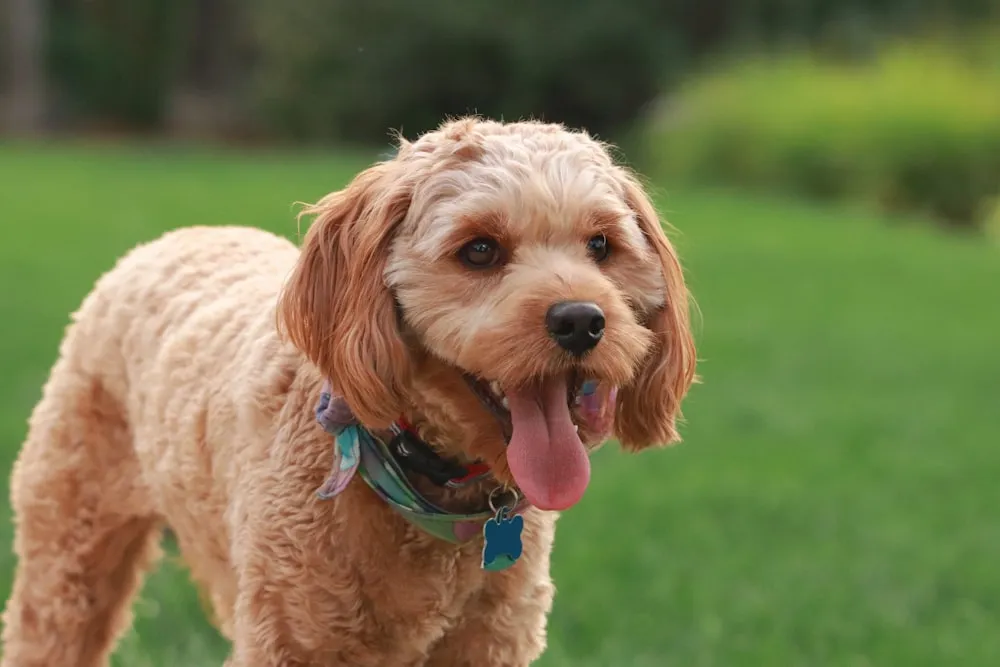
Diet and Nutrition Essentials
A balanced diet is crucial for the health and wellbeing of a Cavadoodle. Considerations include:
- Age-Appropriate Diet: Puppies, adults, and senior dogs have different nutritional needs. Feed them according to their life stage.
- High-Quality Dog Food: Choose a high-quality dog food that meets all the nutritional needs. Look for foods with real, whole-food ingredients.
- Proper Portion Control: Overfeeding can lead to obesity. It's essential to follow portion guidelines and adjust as needed based on activity level.
- Special Dietary Needs: Be aware of any special dietary needs or allergies your Cavadoodle might have.
- Regular Weight Checks: Keeping an eye on their weight helps in adjusting their diet and exercise regime to prevent obesity and related health issues.
Caring for Your Cavadoodle
Caring for Your Cavadoodle
Owning a Cavadoodle comes with the responsibility of ensuring their well-being through proper care. This section focuses on the specific grooming needs, exercise requirements, and tips for creating a comfortable living environment for your Cavadoodle.
Grooming Needs and Tips
Cavadoodles often inherit the Poodle's hypoallergenic coat, which requires regular grooming:
- Brushing: Daily or at least several times a week to prevent matting and tangles.
- Bathing: Every 3-4 weeks, or as needed, using a gentle dog shampoo.
- Hair Trimming: Every 6-8 weeks, especially around the eyes, ears, and paws to maintain their coat and prevent overgrowth that could cause discomfort.
- Ear Care: Regular cleaning to prevent wax build-up and ear infections.
- Nail Trimming: Monthly nail trimming to avoid overgrowth that can lead to discomfort and mobility issues.
- Dental Hygiene: Regular teeth brushing with dog-specific toothpaste to maintain dental health.
Adhering to these grooming routines not only keeps your Cavadoodle looking great but also contributes to their overall health and comfort.
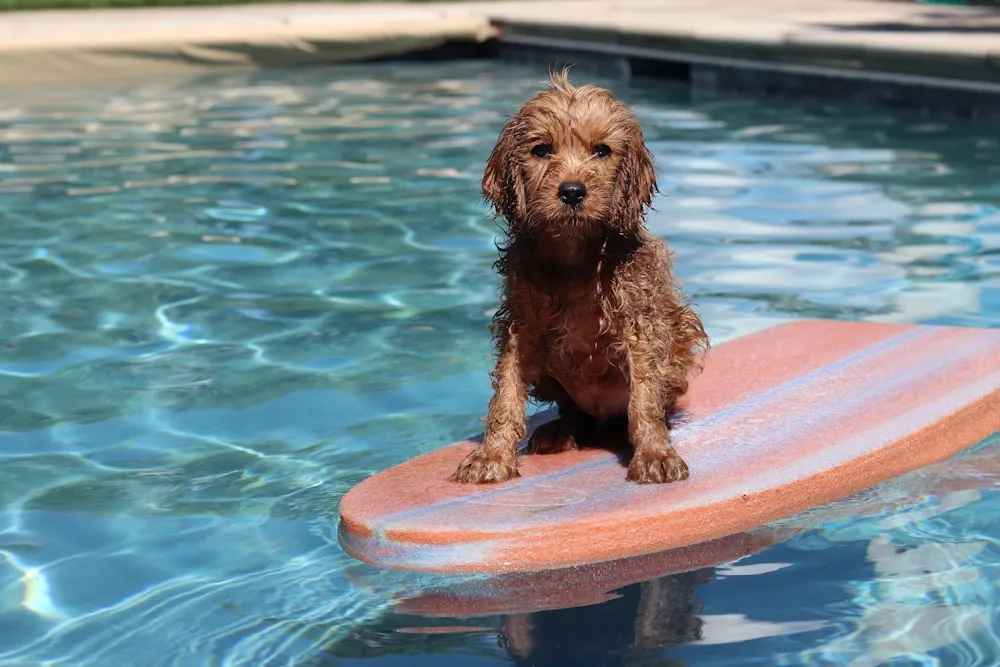
Exercise Requirements
Cavadoodles are an energetic and playful breed that requires regular exercise:
- Daily Walks: At least 30 minutes to an hour of walking each day is recommended.
- Playtime: Interactive play sessions, including fetch and tug-of-war, provide mental stimulation and physical exercise.
- Mental Stimulation: Puzzle toys and training exercises to keep their mind engaged and prevent boredom.
- Age-Appropriate Exercise: Adjust the intensity and duration of exercise according to their age and health status.
Regular exercise is crucial for maintaining a healthy weight, preventing behavioral issues, and keeping your Cavadoodle happy and healthy.
Creating a Comfortable Living Environment
A comfortable and safe living environment is essential for your Cavadoodle's well-being:
- Safe Space: Provide a comfortable bed or crate in a quiet area where they can retreat and rest.
- Temperature Control: Ensure your home is at a comfortable temperature, as Cavadoodles can be sensitive to extreme heat or cold.
- Access to Fresh Water: Always have fresh water available.
- Toys and Entertainment: Offer a variety of toys to keep them entertained and engaged.
- Routine and Structure: Maintain a consistent routine for feeding, walks, and bedtime to provide a sense of security.
- Social Interaction: Regular social interaction with humans and other pets to fulfill their need for companionship.
Training and Socializing Your Cavadoodle
Proper training and socialization are crucial aspects of raising a well-behaved and sociable Cavadoodle. This section explores the essentials of basic training, effective socialization techniques, and strategies for addressing behavioral challenges.
Basic Training Essentials
- Start Early: Begin training your Cavadoodle as soon as you bring them home. Puppies are more receptive to learning new behaviors.
- Positive Reinforcement: Use treats, praise, and affection to reward your Cavadoodle for good behavior. This method reinforces desired behaviors more effectively than punishment.
- Consistency is Key: Be consistent with commands and routines. This helps your dog understand what is expected of them.
- Basic Commands: Focus on basic commands such as 'sit', 'stay', 'come', 'down', and 'heel'. These are foundational for good behavior.
- Leash Training: Teach them to walk calmly on a leash without pulling. This makes walks enjoyable for both of you.
- Potty Training: Establish a consistent routine and designated area for bathroom breaks.
- Crate Training: A crate can be a safe haven for your dog and is an invaluable tool for potty training and preventing destructive behavior when you're not around.
- Patience and Persistence: Training takes time and patience. Be persistent and maintain a positive attitude throughout the training process.
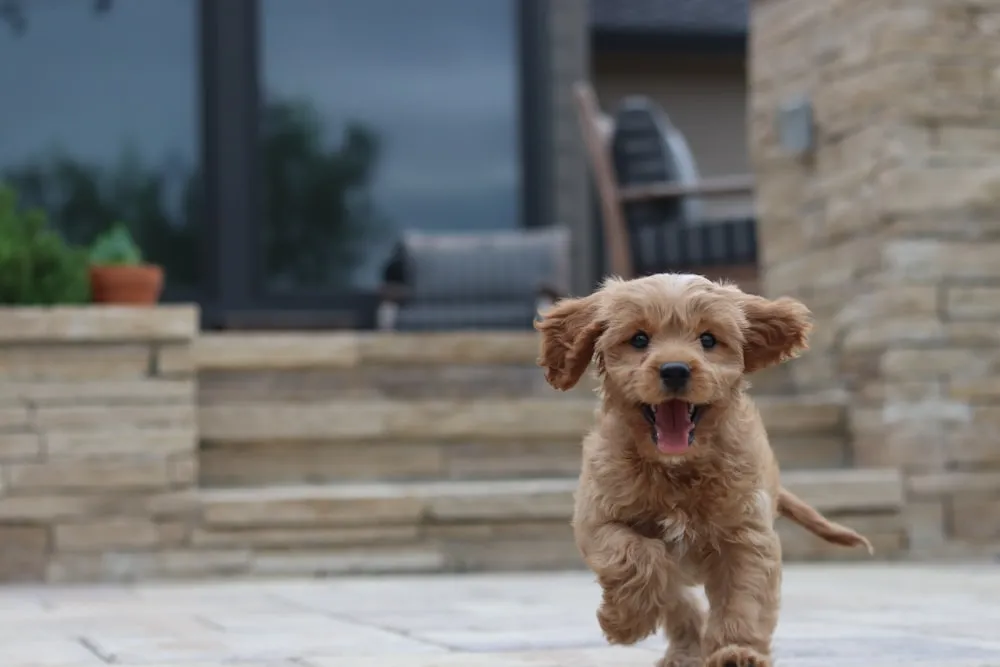
Socialization Techniques
- Early Socialization: Expose your Cavadoodle to different people, pets, environments, and experiences early on. This helps them become well-adjusted and less fearful in various situations.
- Controlled Exposure: Introduce new experiences gradually and in a controlled manner to avoid overwhelming them.
- Playdates: Arrange playdates with other dogs. This helps in developing their social skills.
- Training Classes: Puppy training classes are a great way to socialize your dog while also teaching them basic commands.
- Positive Experiences: Ensure that socialization experiences are positive. Use treats and praises to associate new experiences with positive outcomes.
- Regular Interaction: Regularly interacting with family members and other pets at home helps in building their social skills.
Addressing Behavioral Challenges
- Identify the Cause: Understand the root cause of the behavioral issue. Is it fear, boredom, lack of exercise, or something else?
- Professional Help: If you're struggling with certain behaviors, consider enlisting the help of a professional dog trainer or behaviorist.
- Exercise and Mental Stimulation: Often, problematic behaviors are the result of pent-up energy or boredom. Ensure your Cavadoodle gets enough physical and mental exercise.
- Positive Reinforcement: Focus on reinforcing good behavior rather than punishing bad behavior.
- Be Calm and Assertive: Dogs respond to your energy. Stay calm and assertive to help your dog feel secure and understand your expectations.
- Consistency: Consistency in your approach to addressing behavior issues is crucial. Everyone in your household should respond to and correct behaviors in the same way.
Cavadoodle as Family Pets
Cavadoodles are renowned for their amiable nature and adaptability as family pets. Their affectionate demeanor and flexible temperament make them outstanding companions, similar to the intelligent.
Compatibility with Children and Other Pets
- Gentle with Children: Cavadoodles are typically very patient and enjoy playful interactions with children.
- Supervised Interactions: It's important to oversee interactions between young children and your Cavadoodle, ensuring safety and teaching children the respect and care these intelligent pets deserve.
- Socializing with Other Pets: Cavadoodles often get along well with other household pets, especially when introduced at a young age.
- Teaching Respect: Educating children on how to interact with pets is crucial.
The Emotional Connection
- Empathetic Companions: Cavadoodles are often very attuned to their owners' emotions, offering comfort and companionship.
- Bonding Through Routine: Establishing regular routines can help strengthen the bond between you and your intelligent Cavadoodle.
- Loyal and Affectionate: These dogs are known for their loyalty and affectionate behavior, often forming a deep connection with family members, a trait shared with the smart.
Activities to Enjoy with Your Cavadoodle
- Walking and Hiking: These activities are great for exploring the outdoors with Cavadoole.
- Fetch and Play: Engaging in games that challenge their intelligence can be highly enjoyable for Cavadoodles.
- Training Games: Participating in training games enhances the bond and showcases their intelligence, a common trait with the smart.
- Water Activities: Cavadoodles often enjoy water and can be great companions for water-based activities.
- Dog Parks and Social Events: This is a wonderful opportunity for socializing, akin to the experience with smart dogs like Dalmatians.
- Cuddle Time: Relaxing together strengthens your emotional connection, just as it does with other intelligent breeds.
- Travel Companions: Their adaptable nature makes them great travel companions, similar to the versatile.
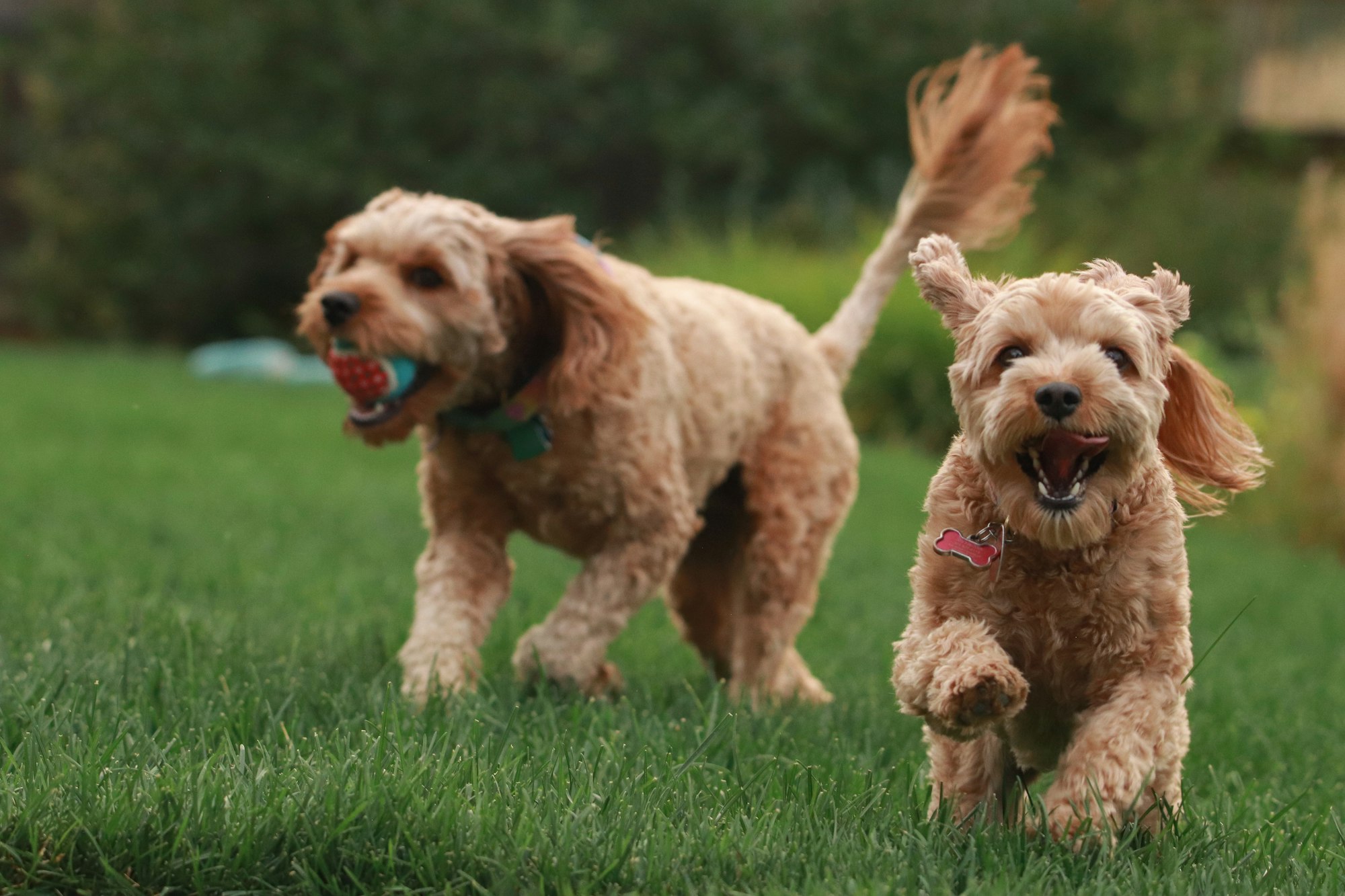
Conclusion
Owning a Cavadoodle brings an unparalleled blend of joy, companionship, and warmth into one's life. These delightful dogs, born from the harmonious combination of the intelligent Poodle and the affectionate Cavalier King Charles Spaniel, inherit the best traits of both breeds, making them not just pets, but cherished family members. Known for their adaptable nature and empathetic temperament, Cavadoodles fit seamlessly into various lifestyles, whether in a bustling family home or a cozy apartment.
Their hypoallergenic coats cater to those with allergies, while their eagerness to please and trainability make them a joy to work with. The emotional bond that develops between a Cavadoodle and its owner is profound and heartwarming, offering a unique kind of companionship that's full of affection, loyalty, and fun.
From playful outdoor adventures to serene moments of relaxation, each experience with a Cavadoodle enriches life, making every day brighter and filled with unconditional love. In essence, the Cavadoodle is more than just a dog breed; it's a source of endless happiness and a testament to the special bond between humans and their canine friends.




